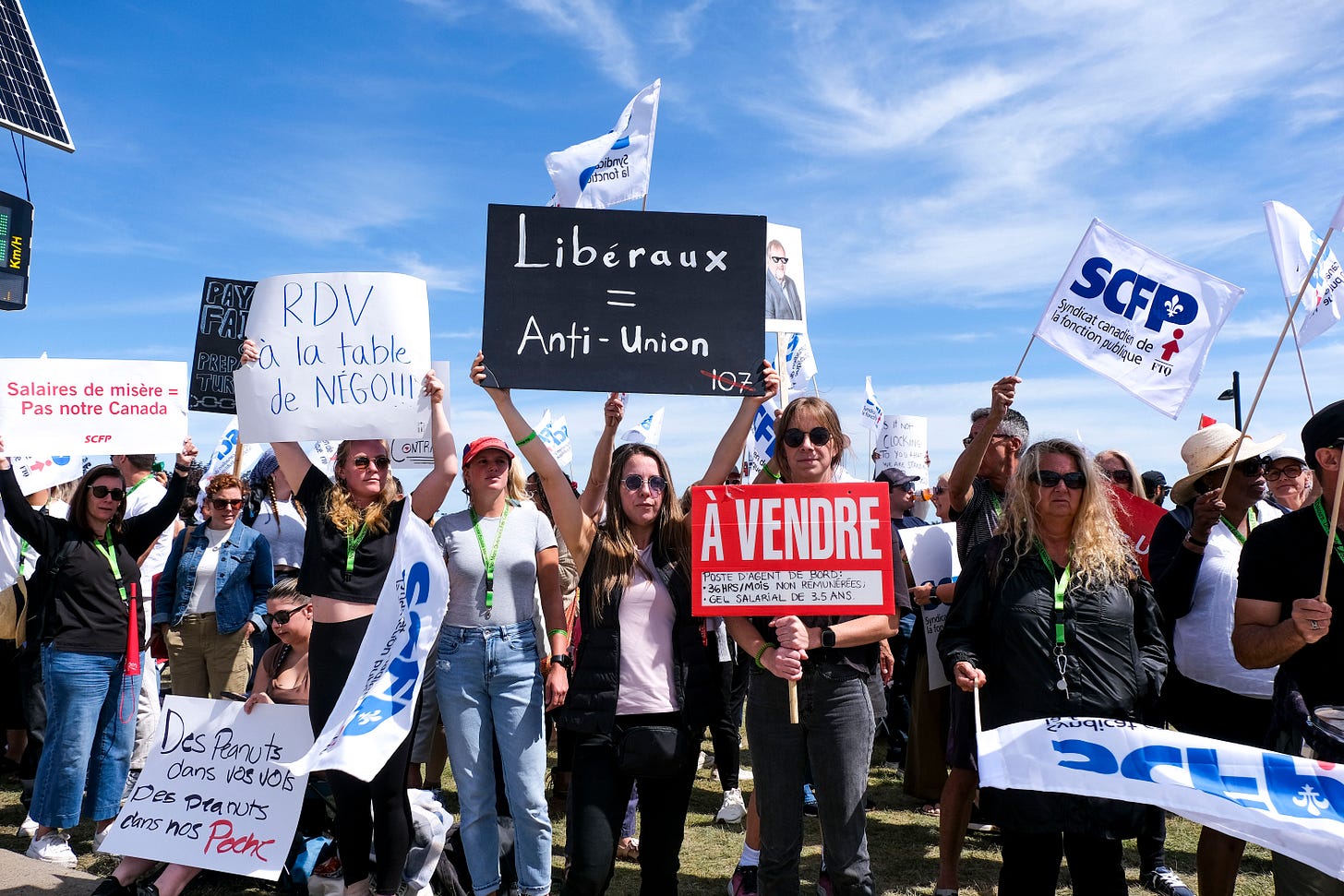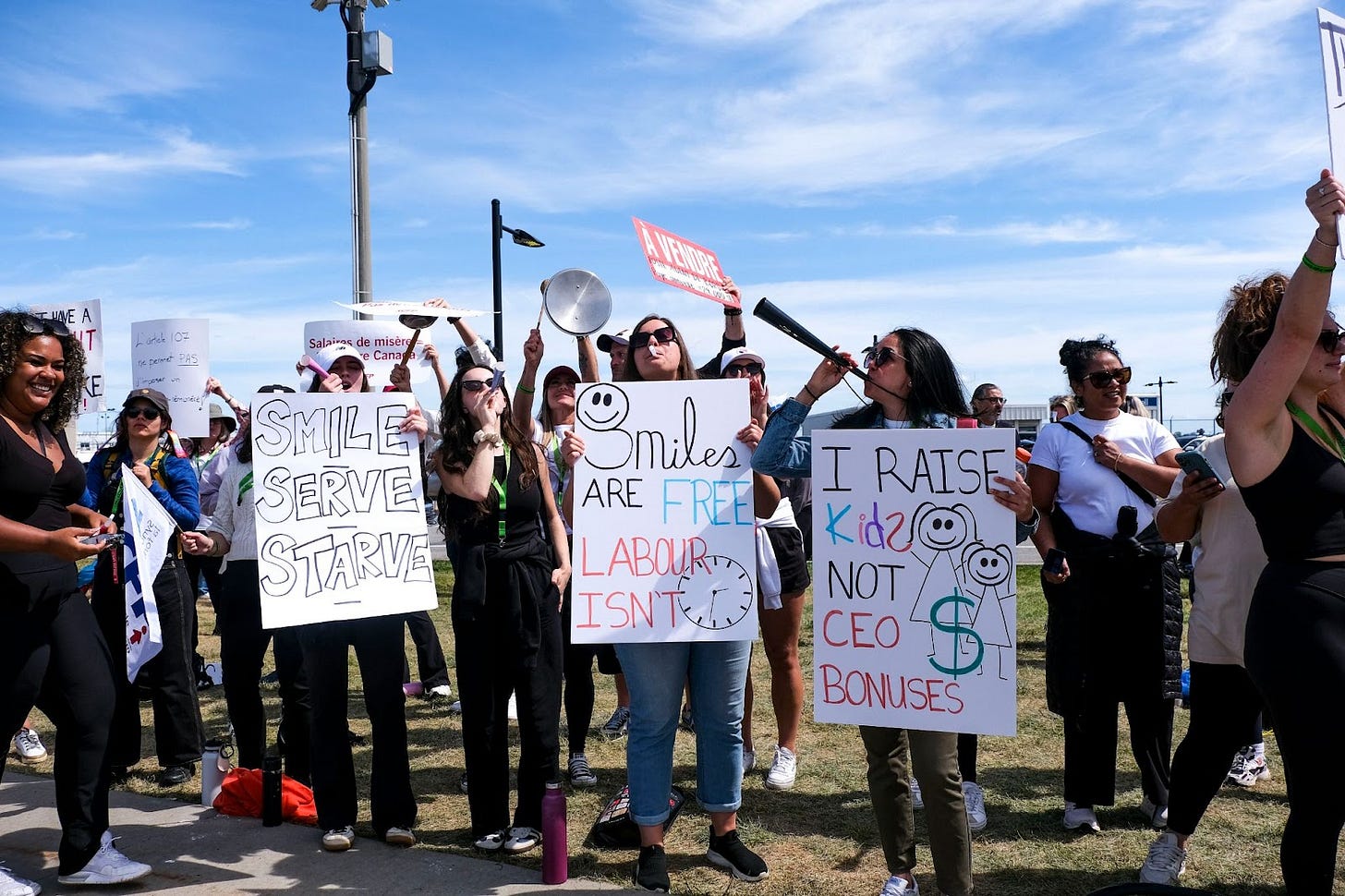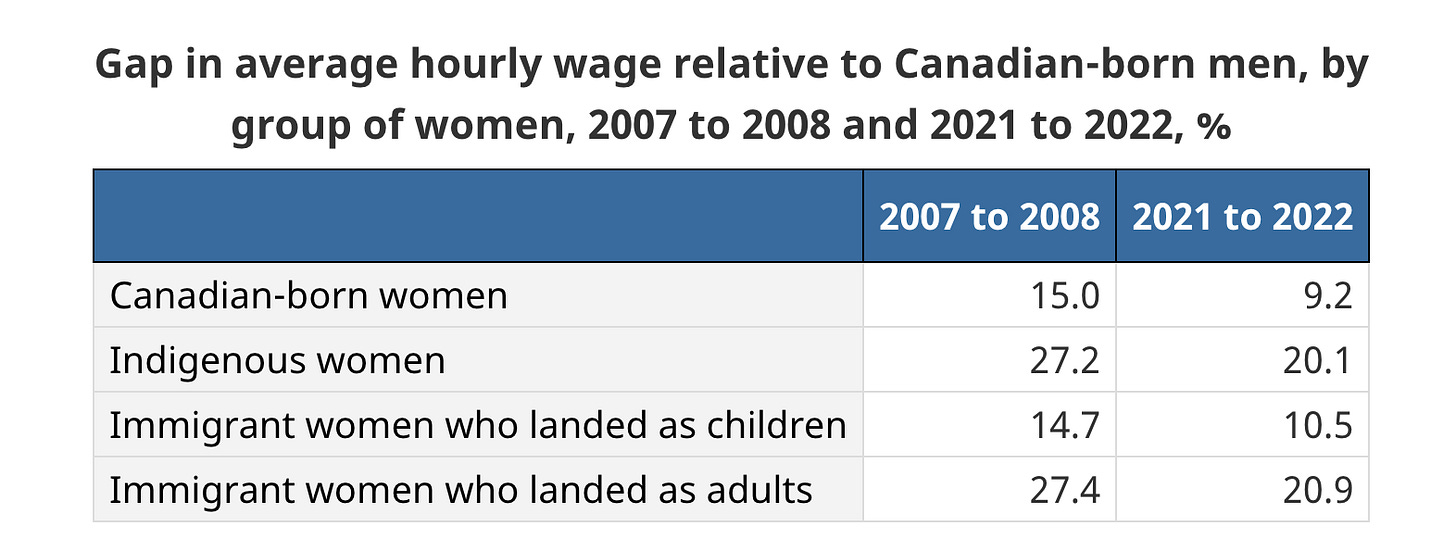THE ROVER x ISAAC PELTZ: Union Reaches Deal With Air Canada, Potentially Changing the Future of Strikes Across the Country
A behind-the-scenes look at the abusive working conditions of Air Canada, and the overreach of the federal government, in collaboration with The Rover!
“Air Canada and Air Canada Rouge flight attendants have reached a tentative agreement, radically transforming our industry after a historic struggle to assert our Charter rights.
We have ended unpaid work.
We have regained our voice and our power.”
-A spokesperson for CUPE
A tentative deal was reached between Air Canada and the Canadian Union of Public Employees (CUPE). The details of the deal have not been disclosed, as it needs to be ratified by the membership first. This strike is the first since 2011 to ignore a federal use of Section 107 of the labour code, which grants the minister of labour, Patty Hajdu, the power to intervene where she “deems it expedient” to “secure industrial peace.”
The deal is intended to fix what a spokesperson at CUPE called “miserable working conditions”.
Many of the 10,000 flight attendants had become so desperate that some were forced to steal food to survive. In response, CUPE established food banks specifically for airline employees.
Others, unable to afford housing, have been living out of their cars in airport parking garages.
“Their salaries are starvation wages,” the spokesperson said. “Enough. Enough of making money off the backs of workers. Enough of miserable pay. Enough of unpaid labour.”
Within 24 hours of the strike beginning, federal Labour Minister Patty Hajdu and the Canadian Industrial Relations Board (CIRB) invoked Section 107 of the Canadian Labour Code, ordering flight attendants back to work.
“The speed at which the federal government intervened is surprising,” said Robert Boyd, partner and workers’ rights lawyer at Cain Lamarre. “Large employers won’t negotiate seriously if the minister is going to intervene so quickly. It removes the pressure (that unions) can apply.”
He explained that Section 107, despite being federal law since the 1980s, hadn't been used until 2011. Its rapid usage in this strike has begun a discussion among workers' rights advocates as well as lawyers about whether it is lawful or not, seeing as it bypasses a fundamental right in Canada.
By resisting the back-to-work order, each union member faced fines of up to $1,000 a day. Since a tentative deal has been reached, this could tilt the scales towards unions who disregard federal use of Section 107.
Yesterday, Mark Hancock, CUPE’s national president, stood in front of dozens of reporters outside Toronto-Pearson airport, undeterred.
“If it means folks like me going to jail, so be it. If it means our union being fined, then so be it,” he said. Hancock insisted he does not believe the government’s order will survive a court challenge, which could take up to 10 years to go through the legal system — and now that a tentative deal has been made it is unclear whether charges will be pursued.
Twenty-seven Air Canada employees spoke to us on condition of anonymity, fearing reprisals. CUPE has also instructed its members not to speak publicly.
Every single one of these workers, expressed a common belief that Air Canada had been in contact with the CIRB before the strike was declared, and that the government was prepared to intervene prior to the strike commencing. The union itself has not endorsed this view, noting it remains unverified. That suspicion is fueled in part by the fact that the current CIRB chair previously served as Senior Legal Counsel for Air Canada for seven years. Employees also point to the federal government’s six per cent ownership stake in Air Canada as further reason for mistrust.
Negotiations between CUPE and Air Canada went on for nine months, and as far as the union is concerned, seemed to be in good faith until the strike was called.
“We were waiting at the negotiation table,” a spokesperson for CUPE said. “We were shocked that they didn’t respond.”
Taken from the CIRB website
Michael Rousseau, the CEO of Air Canada seemed to be completely blindsided.
“We thought, obviously, Section 107 would be enforced, and that they wouldn’t illegally avoid (it),” he said in an interview with Bloomberg. In the interview, he admitted that he had made no provisions for the passengers who are currently stranded. He hadn’t expected there to be resistance to the legislation by the union.
Canadian law provides that any individuals who are stranded in the event of a strike are owed a fully paid flight back on another airline, regardless of whether they have an inter-airline agreement or not. It is encouraged by experts to refuse any offer of a refund, since other airlines have exponentially increased their prices to take advantage of consumers who don’t know their legal rights. Flights will resume on Tuesday.
Despite passengers being stranded and the media portraying this strike as a broadly negative event, polls say nearly 75 per cent of Canadians supported the action.
More protestors outside Montreal's Airport
Flight attendants are asked to work shifts upwards of twelve to sixteen hours, and are unpaid for any hours where they are landed. These layovers often get delayed due to conditions out of their control, such as weather and air traffic control, problems with airplanes, pilots being unavailable, or more. For those working with Air Canada, these unpaid hours add up to, on average, 35-40 hours a month, a spokesperson for the CUPE said.
Air Canada and low-cost subsidiary brand, Air Canada Rouge, are paid wages well below Quebec’s minimum wage when factoring in the hours worked and possible delays. Starting wages at Air Canada are netting employees between $2,800-2,900 a month before taxes, the union told us. This is because despite working full time hours, employees are paid for only an estimated 75 hours a month in the air. Meanwhile, Air Canada Rouge employees who start are taking home only $1,952 a month before taxes. Several Air Canada employees shared their T4 with us and confirmed these wages. By comparison, someone working full time in Montreal making minimum wage would make $2,790 a month before taxes.
The details of the tentative deal announced Tuesday morning have not been given publicly, as it must be voted on by the union first.
The spokesperson explained that the job was originally 100 per cent women, and therefore it is a job that has much lower wages. Seventy per cent of the labour force of flight attendants are women, and 10 per cent are LGBTQ+ folk. This gender gap in pay is common across Canada, according to stats Can.
Taken from statistics Canada
Pilots, a male dominated profession, start at around $50,000 and can reach upwards of $190,000 before taxes, based on seniority. Meanwhile, the highest paid attendants have been in the job 10+ years, and are being paid around $70,000 before taxes.
“We feel proud,” the spokesperson said. The feeling across the union is one of hope, and joy. She explained that across all of CUPE, their goal is to bring back power to unions, and to stand for their charter rights.
“When our rights were taken away, we stood strong, we fought back - and we reached a tentative agreement that our members can endorse,” they said.







Thanks for the excellent coverage. I love that you included the bias of legacy media, as it’s an important factor in this.